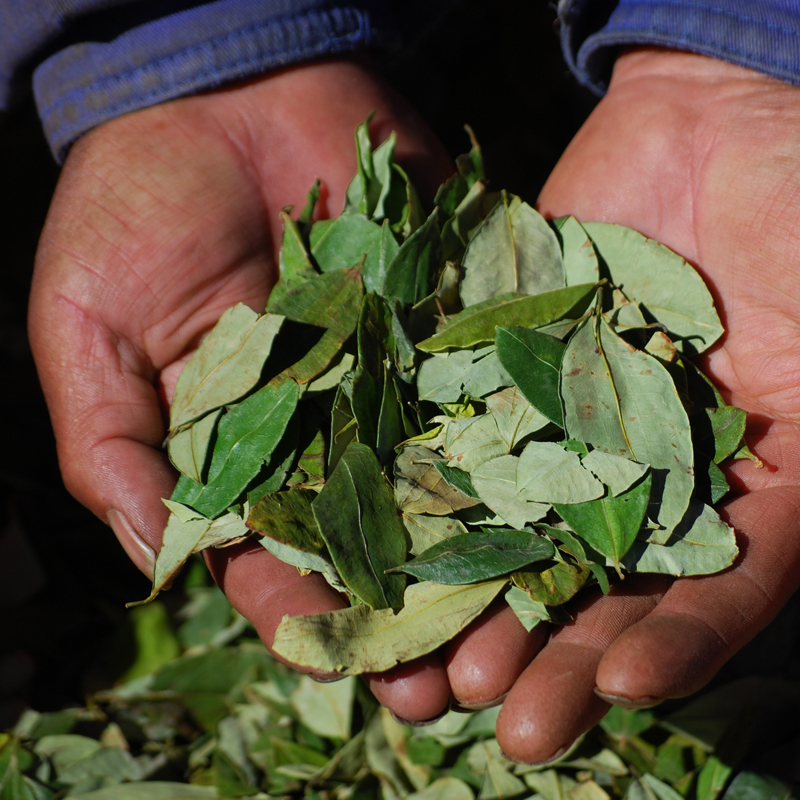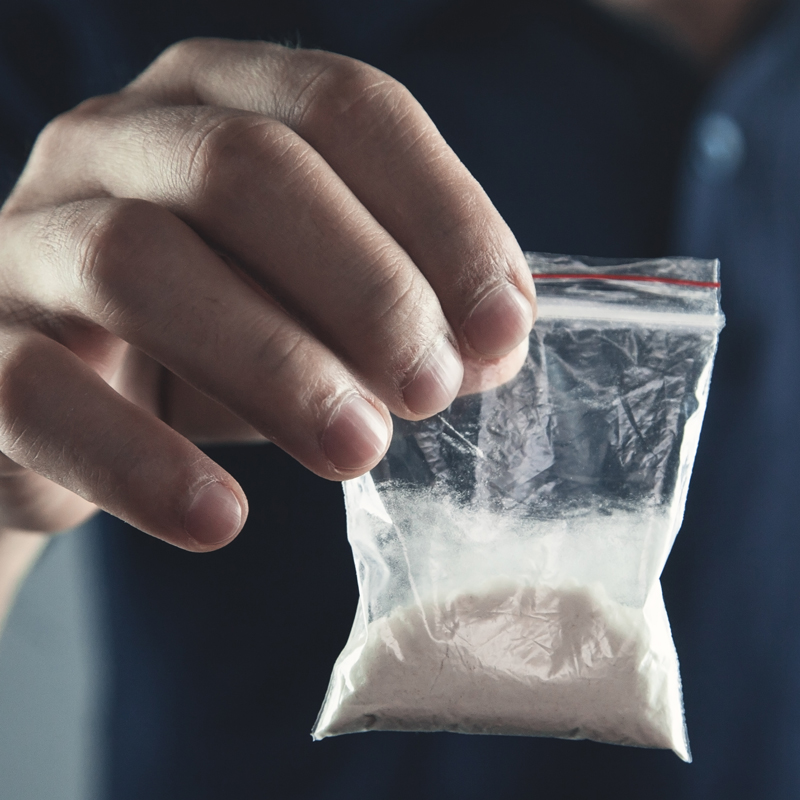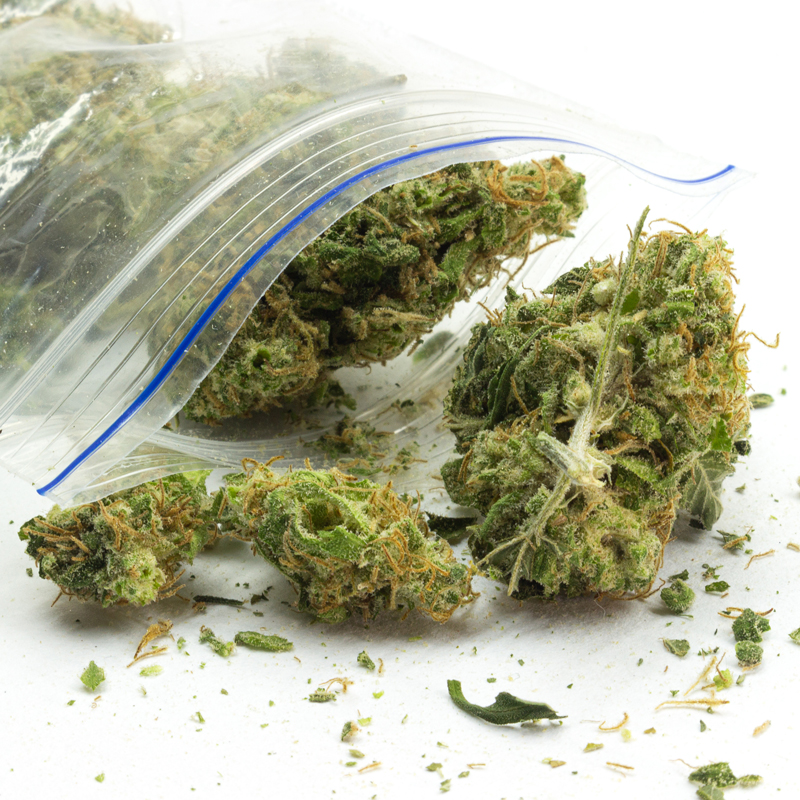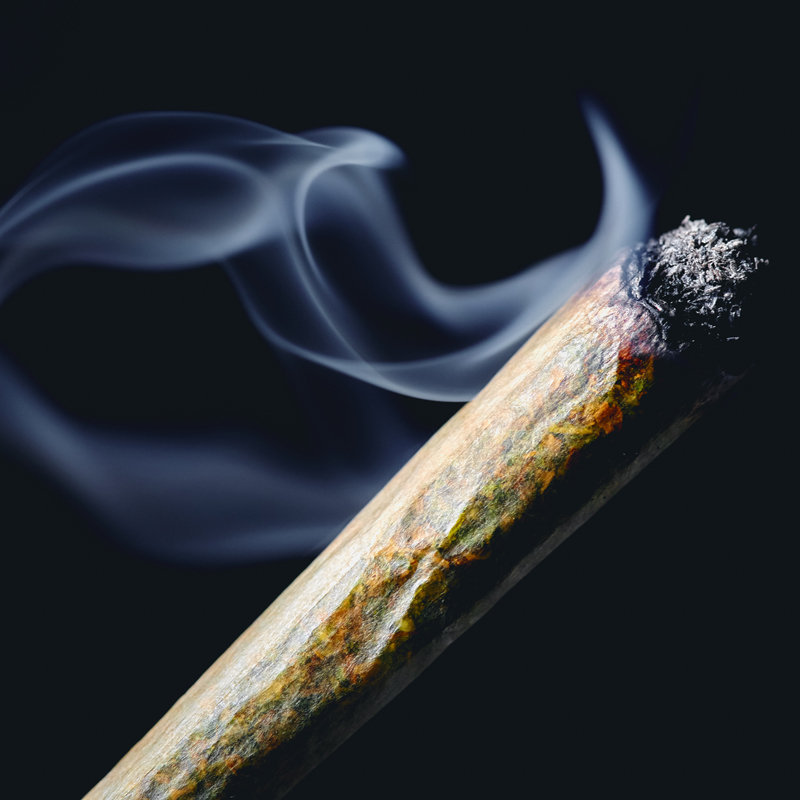Mild version - Home - Drug talk: a place for to get information on drugs in your own language (3)
DRUG TALK:
A drug and alcohol guide for newcomers to the UK who are living on the Wirral.
- Hits: 175
Harm reduction information and advice on the effects and risks, including: dependency, mixing cocaine with other drugs, mental and physical health and UK law.
Cocaine is stimulant drug produced from the leaves of the coca plant (Erythroxylum Coca), The majority of coca cultivation and cocaine production takes place in Columbia, Bolivia and Peru.
The leaves are mashed together with various solvents and other substances to extract the cocaine. This is turned into a white crystalline powder, the most common form of cocaine found in the UK.
Cocaine is frequently ‘cut’ with other chemicals such as lidocaine, caffeine and sugars, which are used to bulk out the cocaine and mimic some of it’s effects.
The purity of ‘street level’ cocaine can be between 40% and 70%..
Snorted
Cocaine in its powder form is usually snorted through a rolled up note or a small tube, but can be ‘dabbed’ on the end of the fingers or ‘keyed’, using the end of a key.
Smoked
Cocaine can be put through a process which turns it into a form of cocaine which can be smoked, known as Crack.
Injected
Cocaine is mixed with water to make an injectable solution.
Cocaine speeds up your heart rate, breathing and brain activity.
It can make you feel confident, exhilarated, excited and alert on the way up, but can make you feel paranoid, edgy and anxious on the way down.
Physical effects include increased heartbeat and breathing, enlarged pupils, raised blood pressure and body temperature.
The effects, when snorted, start within a few minutes and will last approximately 60 to 90 minutes, depending on how much you use, your mood, your size, how often you have used cocaine before and what other drugs you have taken.
Signs of overdose can include, heavy sweating tremors, confusion, hyperactivity, seizures, stroke, irregular heartbeats. Risk of overdose increases if cocaine is mixed with downers like heroin, sedatives or alcohol.
PHYSICAL HEALTH
Cocaine increases your heart rate and can cause it to beat erratically, constrict blood vessels, increase body temperature and increase the risk of a seizure or a fit.
YOUR NOSE
When snorting cocaine it is absorbed into the bloodstream through the lining of your nose, which shrinks the blood vessels and damages the lining of your nose. Symptoms include sneezing, runny nose, nasal congestion and nosebleeds.
MENTAL HEALTH
Cocaine works by altering the balance of chemicals in your brain. When the effects of cocaine wear off you can feel depressed, anxious and paranoid.
The more you use the more you are likely to experience bad feelings. For most people, stopping using cocaine will make these feelings go away, but for some people, especially those who use cocaine regularly, these feelings can continue.
DEPENDENCY
Unlike alcohol or heroin you can’t become physically addicted to cocaine. But, with regular use, you can develop a serious psychological addiction, which can be just as damaging to both your financial and mental health.
DEBT
Building up a tolerance to cocaine can mean you use more to get the same effect. Spending increasing amounts of money on cocaine can leave you seriously in debt.
MIXING DRUGS
Mixing drugs with each other leads to unpredictable and potentially dangerous results. Cocaine and alcohol, used together, produces a substance called cocaethylene, which is more toxic than either substance alone.
ADULTERANTS
Substances used to ‘cut’ cocaine, have health implications of their own. Some are banned substances which have been linked to cancer and kidney damage.
The best way to avoid the risk associated with drugs is not to use drugs.
But if you are using, or considering using cocaine, the advice below will help minimise the risks to your health.
If you are using cocaine, follow these tips to stay in control.

More information about cocaine...Sed ut perspiciatis unde omnis iste natus error sit voluptatem accusantium doloremque

More information about cocaine...Sed ut perspiciatis unde omnis iste natus error sit voluptatem accusantium doloremque

More information about cocaine...Sed ut perspiciatis unde omnis iste natus error sit voluptatem accusantium doloremque

Talk to someone if you're worried about your own, a friend's, or a family member's drug or alcohol use.
Lorem ipsum dolor sit amet, consectetur adipiscing elit. Duis in condimentum odio, ut accumsan lacus.
Ipsum dolor sit amet, consectetur adipiscing elit. Duis in condimentum odio, ut accumsan lacus.
Rem ipsum dolor sit amet, consectetur adipiscing elit. Duis in condimentum odio, ut accumsan .
What is cannabis?
Cannabis is a product of the marijuana plant. It contains some chemicals called cannabinoids. It is the cannabinoid called tetrahydrocannabinol (THC for short) that makes you feel high or stoned.
You will see cannabis in three forms:
Grass
This looks like dried herbs and is green-brown in colour. It is made by drying the leaves, flowers and seeds of the female plant.
Hash
This is a sticky brown substance. It is soft or hard and black or brown in colour. It is taken from the female buds and flowers of the plant.
Cannabis oil
This is a sticky light-coloured liquid that comes from cannabis resin. It is not common to use it as an oil.
In the UK, cannabis is usually used in three different ways:
Smoked
Cannabis is mixed with tobacco and rolled into a cigarette called a joint. Or it is burned in a water pipe or ‘bong’ to cool and filter the smoke. Most people smoke cannabis because you feel it quickly.
Vaped
Cannabis is inhaled through a vape.
Eaten
Cannabis is mixed with normal ingredients to make biscuits (also known as cookies) or cakes.
Using cannabis affects people differently. It depends on many factors: the type of person you are in general, how you are feeling at the time, and where you are and who you are with when you take it.
Many people feel relaxed, happy and ‘chilled out’. Others might feel anxious, paranoid and confused.
If you feel down, cannabis can make you feel worse. This feeling usually goes as the cannabis stops working.
Research tells us that cannabis can make a mental health problem worse or make it visible if you did not know you had one.
To stay safe, it is best to stop using cannabis. If you do not want to stop, this advice can help to reduce some of the risks to your health.
Do not mix cannabis with tobacco
Tobacco causes serious health problems, such as cancer and heart disease. The nicotine in tobacco is also bad for your health and very addictive. You could find it hard to stop using cannabis and to stop smoking cigarettes.
Do not hold cannabis smoke in your lungs
Chemicals that are bad for your health will stick to your lungs. You will not get more stoned if you hold the smoke inside you.
Do not use a cigarette filter
More tar collects in your lungs. Tar causes cancer and increases the risk of lung disease. Use a plain, rolled-up card instead. The smoke will flow easily.
Do not use too many papers to roll the cigarette
Use one to three so you do not breathe in too much burnt paper.
Do not use plastic bottles, rubber hoses, PVC, foil or aluminium as part of your wate pipe
These produce toxic fumes when hot. Glass, steel or brass pipes are safer.
Do not drive or operate machinery
Smoking cannabis makes you slow to react and can cause accidents.
Do not buy more than your normal amount for ‘tomorrow’
You are likely to use it all today.
If you have a bad time with cannabis this advice can help you to be in control.
Vape it rather than smoke it because vaping releases the THC but not the tar.
Have something sweet to eat or drink because cannabis lowers blood-sugar.
Use less, have a break from it, or stop using cannabis if you do not feel good, you cannot concentrate, study, remember things or motivate yourself when you use it.
Avoid places and people where you normally use cannabis if you are trying to use less or stop using it.
Cannabis is a Class B drug. That means it is illegal to possess, produce or supply.
Possession can get you up to 5 years in prison, an unlimited fine, or both. Supply and production can result in up to 14 years in prison, an unlimited fine or both.
It is illegal to drive with over the permitted level of cannabis in your system. If you test positive, you can receive a driving ban, large fine, or go to prison.
Some police forces will deal with possession for personal use by steering you away from the criminal justice system, especially if you’re under 18. Instead, they pick from the following options:
Issue a warning. •
If you’re under 18, the police are allowed to tell your parents or carers. A persistent offender will be prosecuted.
Find out about penalties here: gov.uk/penalties-drug-possession-dealing

Talk to someone if you're worried about your own, a friend's, or a family member's drug or alcohol use.

More information about cannabis...Sed ut perspiciatis unde omnis iste natus error sit voluptatem accusantium doloremque

More information about cannabis...Sed ut perspiciatis unde omnis iste natus error sit voluptatem accusantium doloremque

More information about the implications of a conviction for possesion or supply on a visa or asylum application.
What we usually refer to as alcohol is a chemical called ethanol, which is made through a process called fermentation.
During fermentation, yeast is combined with fruits or grains in order to convert the sugars into alcohol.
Spirits, such as vodka, rum, gin, and whiskey, are fermented and then filtered/distilled to separate the ethanol from water.
Smoked as a joint
Cannabis is usually smoked in a cigarette called a ‘joint’, normally rolled with tobacco.
Smoked using a bong or pipe
Smoked in a pipe or a water ‘bong’ (a pipe which passes the smoke through water to cool and filter it). When smoked, cannabis usually affects you quite quickly.
Vaporisers
Vaporisers (about £50 to buy) are less risky - they get just hot enough to release the THC (Tetrahydrocannabinol, the bit that gets you stoned) but not the tar.
Eating
Sometime people will eat cannabis, mixed with other ingredients, eg. in biscuits (cookies) or cakes.
If it is eaten, the effects take much longer to be felt but can build up and get stronger over a longer time.
It is much harder for someone to control the dose of the drug when cannabis is eaten.
Your body absorbs alcohol into the bloodstream through the stomach and intestines. It’s broken down by the liver and expelled as urine at the speed of about one unit an hour (see page 4 for unit info).
While your liver works to break down the alcohol it can manage, the rest is circulated into your body and sent to your brain, where it depresses your heart rate and breathing and affects your brain's ability to control what your body does.
Initially, one or two drinks generally produce feelings of relaxation and cheerfulness, but any more can lead to blurred vision and coordination problems.
Drinking even more alcohol can lead to a loss of control, blurred/double vision, dizziness, wobbly legs, vomiting and even loss of consciousness.
The effects start within 15-20 minutes of drinking and can last a few hours, depending on how much you drink.
Stronger drinks (like spirits) and fizzy drinks (like alcopops) are absorbed quicker into the bloodstream and will affect you sooner.
How alcohol makes you feel depends on lots of things:
How quickly you drink it
Your liver processes alcohol at a steady rate no matter how quickly you drink. Drinking quickly increases the levels of alcohol in your bloodstream, making you drunker, faster.
How recently you’ve eaten
Food helps slow down the speed that alcohol is released into your system.
Your body weight
In general, the less you weigh, the more you’ll be affected by a given amount of alcohol.
Your mood before drinking
If you feel a bit down before drinking, it may make you feel even more depressed. If you feel angry, it can make you aggressive.
Sex
Women's bodies contain less water than men's, so alcohol is less diluted, meaning women feel the effects more than men. This is particularly true either just before or during a period.
This section contains advice on units, the term used to describe the amount of alcohol, and therefore the strength of your drink.
A unit is defined as 10ml by volume, or 8gm by weight, of pure alcohol. Units are normally displayed on alcoholic packaging in a similar style to the label below
Government Guidelines
Government recommended safe drinking limits.
Unit guidelines are the same for men and women. Both are advised not to regularly drink more than 14 units a week.
Working out the units for yourself: Multiply the ABV by the total liquid (ml) and divide by 1000 12 x 750 ÷ 1000 =
| Drink | Volume | Units |
|---|---|---|
| Can of lager | 500ml (Normal strength) | 2 |
| Bottle of strong lager | 330ml | 2 |
| Bottle of alcopops | 275ml | 1.4 |
| Pint of lager | 568ml (Normal strength) | 2 |
| Shot (Tequila, Sambuca, etc.) | 35ml | 1.3 |
| Bottle of wine | 750ml | 9 |
| Glass of Wine | 125ml | 1.5 |
| Spirits (Vodka, Whiskey, etc.) | 35ml | 1.4 |
Guidelines for both men and women recommend drinking no more than 14 units a week to reduce the risk to your health.
The more you drink, the more your risk of developing a range of health problems (including cancers of the mouth, throat and breast) increases.
If you drink up to 14 units a week, spread them over a few days and include drink-free days.
There are no safe limits for young people: not drinking is the healthiest option.
Positive effects of drinking at ‘recommended’ levels
Drinking over limits: short-term negative effects
Drinking over limits: long-term negative effects
Different people react in different ways to alcohol. For some people, alcohol helps them relax and enjoy social occasions; for others, it might damage their health and personal life.
Signs that you’re developing an unhealthy relationship with alcohol:
If any of the above apply to you, you should consider cutting down. If a few of these apply to you, contact your GP for help and advice, or contact any of the organisations on the back page of this booklet.
Getting hooked on alcohol
Regular use of alcohol can lead to tolerance: having to drink more and more to get the same effect. This can lead to physical dependence.
Mixing alcohol and other drugs
Mixing alcohol with other drugs, particularly depressants like sleeping tablets or heroin, is risky. The combination produces effects which are difficult to predict and can lead to an increased risk of passing out or death.
Overdose
Alcohol slows down breathing and heart rate. In large enough quantities, it can lead to loss of consciousness and even death.
Signs of alcohol overdose:
If a person displays any of these symptoms, lie them on their side so they don't choke if they're sick, and call 999.
Alcohol and sex
Alcohol can affect your judgement and make you feel confused. You’re more likely to have unplanned sex when drinking.
You’re also at risk of rape, sexually transmitted infections (STIs) and pregnancy.
Always use a condom during sex.
Alcohol and violence
Alcohol lowers your inhibitions, causing you to overreact in certain situations, which can lead to aggressive behaviour. It's not much fun waking up in a police cell with a hangover and a criminal record.
It might also lead to problems with your friends and family. Being drunk isn't much of an excuse if you say something that you regret the next day.
Being drunk makes you an easy target for robbery and assault. So don't flash your mobile phone, or any other valuables, around. Be aware of your surroundings.
Drink Driving
Driving while drunk or being in a car with a drunk driver is very dangerous both for you and other people in the car. You, your friends or a pedestrian could be seriously hurt or killed.
Passing out
As already mentioned, it’s possible to overdose on alcohol which can be fatal. If someone you’re with passes out, turn them onto their side so they can't choke on their vomit and ring an ambulance or find someone to help you.
Space your drinks out
Use soft drinks or water between alcoholic drinks. Your night will last longer, and it will stop you from getting dehydrated and reduce the effects of a hangover.
Don't drink on an empty stomach
Food slows the release of alcohol into your system and helps to limit how quickly the alcohol affects you. Eating a meal before you go out or a snack while you drink is a good idea. You’ll have more energy to enjoy yourself!
Have smaller drinks
Some measures in pubs and clubs can be very large and have 2 or 3 units in each drink. Where possible, choose a smaller glass.
Have a day off
Give your liver a chance to 'detox' by having at least two alcohol-free days a week – this way, it has time to recover and repair itself.
Drinking before you go out
Drinking alcohol before you go out means you could already be drunk before you start your night out.
You’re more likely to be involved in accidents and violence, or be refused more alcohol at the bar.
Try to stick to one type of drink
Avoid mixing your drinks. This’ll help you keep track of how many units you've had and avoid mixing different strength drinks.
Mixing drugs and alcohol
Mixing alcohol with drugs, particularly depressant drugs, can increase the chances of an overdose and can make the effects of the individual drugs unpredictable and dangerous.

Talk to someone if you're worried about your own, a friend's, or a family member's drug or alcohol use.

More information about cannabis...Sed ut perspiciatis unde omnis iste natus error sit voluptatem accusantium doloremque

More information about cannabis...Sed ut perspiciatis unde omnis iste natus error sit voluptatem accusantium doloremque

More information about the implications of a conviction for possesion or supply on a visa or asylum application.

Harm reduction information and advice on the effects and risks, including: dependency, mixing cocaine with other drugs, mental and physical health and UK law.
Cocaine is stimulant drug produced from the leaves of the coca plant (Erythroxylum Coca), The majority of coca cultivation and cocaine production takes place in Columbia, Bolivia and Peru.
The leaves are mashed together with various solvents and other substances to extract the cocaine. This is turned into a white crystalline powder, the most common form of cocaine found in the UK.
Cocaine is frequently ‘cut’ with other chemicals such as lidocaine, caffeine and sugars, which are used to bulk out the cocaine and mimic some of it’s effects.
The purity of ‘street level’ cocaine can be between 40% and 70%..
Snorted
Cocaine in its powder form is usually snorted through a rolled up note or a small tube, but can be ‘dabbed’ on the end of the fingers or ‘keyed’, using the end of a key.
Smoked
Cocaine can be put through a process which turns it into a form of cocaine which can be smoked, known as Crack.
Injected
Cocaine is mixed with water to make an injectable solution.
Cocaine speeds up your heart rate, breathing and brain activity.
It can make you feel confident, exhilarated, excited and alert on the way up, but can make you feel paranoid, edgy and anxious on the way down.
Physical effects include increased heartbeat and breathing, enlarged pupils, raised blood pressure and body temperature.
The effects, when snorted, start within a few minutes and will last approximately 60 to 90 minutes, depending on how much you use, your mood, your size, how often you have used cocaine before and what other drugs you have taken.
Signs of overdose can include, heavy sweating tremors, confusion, hyperactivity, seizures, stroke, irregular heartbeats. Risk of overdose increases if cocaine is mixed with downers like heroin, sedatives or alcohol.
PHYSICAL HEALTH
Cocaine increases your heart rate and can cause it to beat erratically, constrict blood vessels, increase body temperature and increase the risk of a seizure or a fit.
YOUR NOSE
When snorting cocaine it is absorbed into the bloodstream through the lining of your nose, which shrinks the blood vessels and damages the lining of your nose. Symptoms include sneezing, runny nose, nasal congestion and nosebleeds.
MENTAL HEALTH
Cocaine works by altering the balance of chemicals in your brain. When the effects of cocaine wear off you can feel depressed, anxious and paranoid.
The more you use the more you are likely to experience bad feelings. For most people, stopping using cocaine will make these feelings go away, but for some people, especially those who use cocaine regularly, these feelings can continue.
DEPENDENCY
Unlike alcohol or heroin you can’t become physically addicted to cocaine. But, with regular use, you can develop a serious psychological addiction, which can be just as damaging to both your financial and mental health.
DEBT
Building up a tolerance to cocaine can mean you use more to get the same effect. Spending increasing amounts of money on cocaine can leave you seriously in debt.
MIXING DRUGS
Mixing drugs with each other leads to unpredictable and potentially dangerous results. Cocaine and alcohol, used together, produces a substance called cocaethylene, which is more toxic than either substance alone.
ADULTERANTS
Substances used to ‘cut’ cocaine, have health implications of their own. Some are banned substances which have been linked to cancer and kidney damage.
The best way to avoid the risk associated with drugs is not to use drugs.
But if you are using, or considering using cocaine, the advice below will help minimise the risks to your health.
If you are using cocaine, follow these tips to stay in control.

More information about cocaine...Sed ut perspiciatis unde omnis iste natus error sit voluptatem accusantium doloremque

More information about cocaine...Sed ut perspiciatis unde omnis iste natus error sit voluptatem accusantium doloremque

More information about cocaine...Sed ut perspiciatis unde omnis iste natus error sit voluptatem accusantium doloremque

Talk to someone if you're worried about your own, a friend's, or a family member's drug or alcohol use.
Lorem ipsum dolor sit amet, consectetur adipiscing elit. Duis in condimentum odio, ut accumsan lacus.
Ipsum dolor sit amet, consectetur adipiscing elit. Duis in condimentum odio, ut accumsan lacus.
Rem ipsum dolor sit amet, consectetur adipiscing elit. Duis in condimentum odio, ut accumsan .